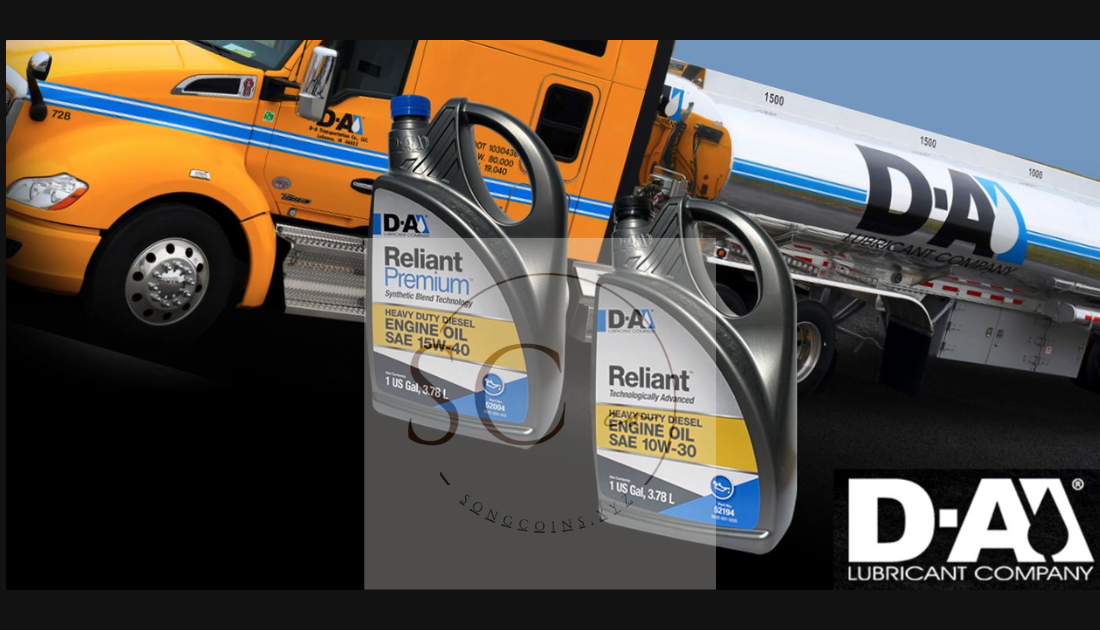Blog
Heavy-Duty Oil for Trucks: Ensuring Optimal Performance and Longevity
Heavy-duty trucks endure extreme conditions, from long-haul trips to towing heavy loads and navigating challenging terrains. Using the right heavy-duty oil for trucks is essential to keep engines running efficiently and prevent costly breakdowns. This comprehensive guide explains the benefits, features, and maintenance tips for heavy-duty oil, ensuring your truck operates at its best.
What Is Heavy-Duty Oil for Trucks?
Heavy-duty oil is a specially formulated lubricant designed to meet the demands of truck engines operating under high stress. It provides superior protection against wear, reduces friction, and ensures optimal engine performance even in extreme conditions.
- Composition of Heavy-Duty Oil
Heavy-duty oil contains high-quality base oils and advanced additives that enhance its performance. These additives provide benefits such as cleaning, anti-wear protection, and temperature stability. - How It Differs from Regular Oil
Unlike standard motor oil, heavy-duty oil is engineered to handle higher temperatures, heavier loads, and longer operational hours. It also offers better resistance to oxidation and sludge formation. - Who Needs Heavy-Duty Oil?
Trucks used for commercial purposes, such as freight transportation, construction, or agriculture, benefit most from heavy-duty oil. Personal trucks used for towing or off-road adventures also gain from its enhanced properties.
Benefits of Using Heavy-Duty Oil for Trucks
Investing in high-quality heavy-duty oil for trucks delivers a range of advantages that improve engine performance and reduce maintenance costs. Understanding these benefits highlights its importance for truck owners.
- Superior Wear Protection
Heavy-duty oil forms a robust film between moving parts, minimizing friction and preventing wear. This protection extends the life of critical engine components. - Improved Engine Efficiency
By reducing friction and maintaining proper lubrication, heavy-duty oil enhances fuel efficiency. It also ensures smoother engine operation, even under heavy loads. - Enhanced Cleaning Properties
The detergents in heavy-duty oil help remove deposits, sludge, and contaminants. This keeps the engine clean and prevents blockages that can reduce performance. - Temperature Stability
Heavy-duty oil maintains its viscosity across a wide temperature range. It remains effective in extreme heat and cold, ensuring reliable lubrication regardless of weather conditions. - Longer Oil Change Intervals
High-quality heavy-duty oil retains its properties longer than standard oils. This reduces the frequency of oil changes, saving time and money.
Key Features of High-Quality Heavy-Duty Oil
Not all heavy-duty oils are created equal. Recognizing the features of premium oils ensures you choose the right product for your truck.
- Viscosity Grade
Heavy-duty oils come in various viscosity grades, such as 15W-40 or 10W-30. These grades indicate the oil’s flow characteristics at different temperatures. Selecting the correct grade ensures optimal engine performance. - Synthetic vs. Conventional Oil
Synthetic heavy-duty oils offer superior performance compared to conventional oils. They provide better resistance to oxidation, extreme temperatures, and sludge formation. - API and OEM Certifications
Look for oils that meet the standards set by the American Petroleum Institute (API) and your truck’s original equipment manufacturer (OEM). These certifications ensure the oil meets industry and manufacturer requirements. - Advanced Additives
Premium heavy-duty oils contain additives such as anti-wear agents, detergents, and dispersants. These enhance the oil’s performance and protect the engine.

How to Choose the Best Heavy-Duty Oil for Trucks
Selecting the right heavy-duty oil requires careful consideration of your truck’s needs and operating conditions. These tips help you make an informed decision.
- Refer to the Owner’s Manual
Your truck’s manual provides specific recommendations for oil viscosity and API certifications. Following these guidelines ensures compatibility and performance. - Consider Driving Conditions
Trucks operating in extreme climates or under heavy loads require oils with superior thermal stability and high shear resistance. - Opt for Synthetic Options
If your budget allows, synthetic heavy-duty oils provide better protection and longer service life than conventional oils. - Check for Compatibility with Emission Systems
Modern trucks with advanced emission systems, such as diesel particulate filters (DPFs), require low-ash oils. Ensure the oil you choose is compatible. - Evaluate Brand Reputation
Choose oils from reputable brands known for their quality and reliability. Established brands often invest in research and testing to produce superior products.
Maintaining Your Truck with Heavy-Duty Oil
Proper maintenance practices maximize the benefits of heavy-duty oil, ensuring your truck performs reliably and efficiently. Follow these tips to maintain your engine’s health.
- Monitor Oil Levels
Regularly check oil levels using the dipstick. Low oil levels can lead to insufficient lubrication and engine damage. - Follow Recommended Oil Change Intervals
Adhere to the oil change intervals specified in your truck’s manual. While heavy-duty oils extend these intervals, timely changes are crucial for optimal performance. - Inspect Oil Quality
Look for signs of contamination, such as discoloration or a burnt smell. Contaminated oil may indicate a problem with the engine or fuel system. - Use Quality Oil Filters
A high-quality oil filter complements heavy-duty oil by removing impurities and preventing engine wear. Replace the filter during every oil change. - Conduct Regular Engine Inspections
Periodic inspections help identify potential issues, such as leaks or worn components. Addressing problems early prevents costly repairs.
Common Myths About Heavy-Duty Oil for Trucks
Despite its widespread use, several misconceptions surround heavy-duty oil. Clarifying these myths helps truck owners make better decisions.
- Myth: All Oils Are the Same
Fact: Heavy-duty oils are specifically formulated for trucks and differ significantly from standard motor oils in terms of performance and durability. - Myth: Synthetic Oil Is Only for New Trucks
Fact: Synthetic heavy-duty oils benefit both new and older trucks by providing superior protection and cleaning properties. - Myth: You Don’t Need Oil Changes with High-Quality Oil
Fact: While heavy-duty oil lasts longer, regular oil changes are still necessary to maintain engine performance and reliability. - Myth: Heavier Oil Is Always Better
Fact: Using the correct viscosity grade recommended by your truck’s manufacturer is essential. Thicker oil isn’t always better and can reduce efficiency.
The Future of Heavy-Duty Oil for Trucks
Advancements in technology continue to improve the performance and sustainability of heavy-duty oils. Future developments aim to address the growing demand for eco-friendly and high-performance lubricants.
- Improved Fuel Efficiency
New formulations focus on reducing engine friction to enhance fuel economy without compromising protection. - Eco-Friendly Options
Manufacturers are developing low-emission oils that meet stricter environmental regulations while maintaining performance. - Longer Service Intervals
Innovations in additive technology aim to further extend oil change intervals, reducing maintenance costs. - Enhanced Compatibility with Modern Engines
Heavy-duty oils are evolving to meet the needs of advanced engine designs, including those with turbochargers and emission control systems.
Conclusion: Unlocking the Power of Heavy-Duty Oil for Trucks
Heavy-duty oil for trucks is a crucial investment for maintaining engine performance, reducing wear, and extending your vehicle’s lifespan. By choosing the right oil and following proper maintenance practices, you can ensure your truck remains reliable and efficient, even under demanding conditions.

